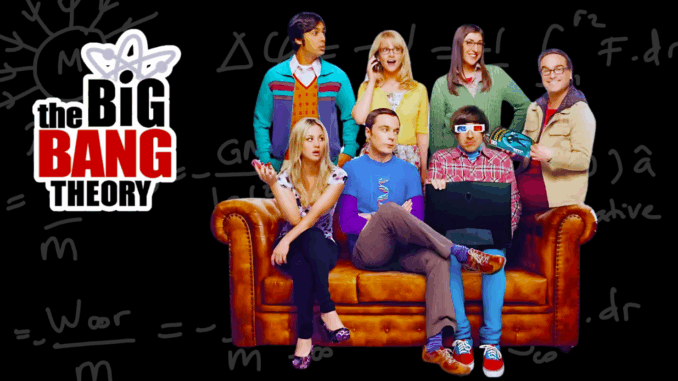
When The Big Bang Theory aired its final episode in 2019, it closed the curtain on 12 seasons of nerdy banter, iconic catchphrases, and unlikely friendships. But half a decade later, fans continue to stream the show by the millions, dissect its character arcs, and quote Sheldon’s quirks with the same reverence as lines from Shakespeare (well, sort of).
But why?
Why does The Big Bang Theory still matter — and what did it say about us that made it last?
Science, Friendship, and the Socially Awkward Revolution
When the show debuted in 2007, it was considered niche. A sitcom about two Caltech physicists who loved Star Trek, struggled with social cues, and spent weekends gaming? It wasn’t a sure bet.
But then something strange happened. Audiences didn’t just relate — they rooted for them.
Before Marvel ruled the box office and Comic-Con sold out in minutes, The Big Bang Theory helped make geek culture mainstream. Suddenly, it was okay to care deeply about quantum mechanics and whether or not Superman’s cape followed Newtonian physics.
Sheldon, Leonard, Raj, and Howard weren’t cool — and that’s exactly what made them iconic. They weren’t trying to be relatable. They were real in a way that most sitcoms hadn’t dared to explore before.

The Unexpected Heartbeat — Penny and the Power of Empathy
Penny wasn’t just the “girl next door” — she was the bridge between two worlds. Her character started as an outsider to the group’s insular nerd-dom, but her evolution was subtle and brilliant.
She never had to become a scientist to belong. Instead, the show emphasized emotional intelligence. Her empathy balanced Sheldon’s rigidity. Her humor softened Leonard’s neuroses.
And while her romance with Leonard had its ups and downs, Penny’s presence constantly reminded us that intellect and kindness aren’t mutually exclusive.
Sheldon Cooper — The Unlikely Soul of the Show
Jim Parsons’ portrayal of Sheldon Cooper became the beating heart of the series. Equal parts irritating and lovable, his unwavering routines, condescension, and bizarre honesty often stole the show.
Many sitcoms flatten characters over time. Sheldon, however, grew in emotional nuance. Through Amy Farrah Fowler, his relationships with his friends, and ultimately his Nobel Prize win, we witnessed not a full transformation — but a widening of the heart.
By the final season, Sheldon’s evolution wasn’t about becoming “normal.” It was about understanding others and allowing himself to be understood — without ever abandoning the essence of who he was.
Behind the Laughter — A Cast With Chemistry
What made the show so rewatchable wasn’t just the science jokes or pop culture references. It was the cast.
Kaley Cuoco, Jim Parsons, Johnny Galecki, Kunal Nayyar, Simon Helberg, Mayim Bialik, and Melissa Rauch built a group dynamic that never felt forced. Their off-screen friendships translated into natural onscreen chemistry. Even recurring characters like Stuart (Kevin Sussman) became fan favorites, thanks to grounded performances and slow-burning character development.
By the time the show ended, it wasn’t just about physics jokes. It was about these characters growing into a chosen family — supporting each other through awkwardness, romance, rejection, parenthood, and ambition.
A Legacy That Doesn’t Fade
Despite polarizing critics and inevitable repetition, The Big Bang Theory left behind something rare: a show that made smart funny, made awkwardness human, and reminded us that even the most mismatched people can become a family.
Streaming platforms keep it alive. Reruns keep it relevant. Quotes like “Bazinga!” and “I’m not crazy, my mother had me tested” still spark laughter across generations.
And for many fans, it’s more than a show. It’s a comfort zone — one where friendship is unconditional, laughter is abundant, and everyone gets a seat at the cafeteria table.
Final Thought
Not every sitcom gets a second life. But The Big Bang Theory was never just a sitcom.
It was a celebration of difference. A love letter to curiosity. And a reminder that somewhere in Pasadena, four socially awkward scientists and a waitress from Nebraska proved that being yourself — no matter how odd — is always enough.